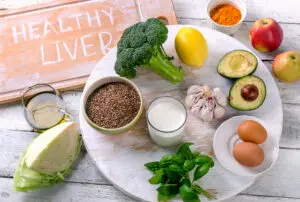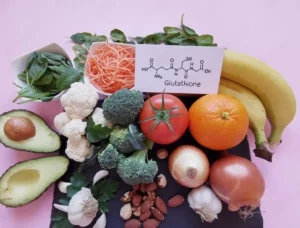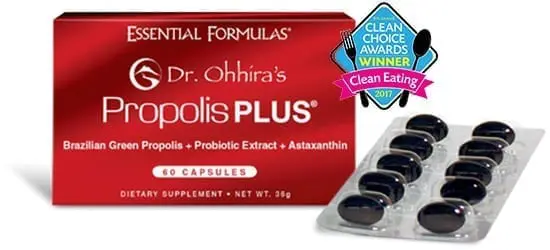But if you don’t comply Probiotics can help ease the ‘pain’ of overindulging!
Many people have conflicting feelings about the holiday season. Getting together with family in celebration is excellent. The decadent displays of food usually presented at gatherings are another story. The turkeys are tempting, that ham is enticing, and did that pumpkin pie call your name?
Of the millions of turkeys produced yearly, about a quarter are served at Thanksgiving and Christmas. Pair those juicy, golden-brown turkeys with stuffing and cranberry sauce. Add in the rum punch, and you’ve got a recipe for overeating and a bad case of indigestion!
“Trying to eat healthy amidst such an array of indulgences presents challenges and a test of willpower,” said Martie Whittekin, CCN. “But taking a few steps before and during holiday parties may help you control your eating and digestive distress.”
Ms. Whittekin suggests eating light meals and snacks on party days so you may enjoy more decadent foods at the event. Fill on vegetables and salad, so you’re less hungry and don’t eat too fast. Watch your alcohol intake and drink water between every alcoholic beverage.
But sometimes, where there’s rich food, indigestion is inevitable. Indigestion is often attributable to poor eating habits, such as consuming high-fat and challenging-to-digest foods, eating too quickly, or simply overeating. Unfortunately, these are all the things that occur during the Holidays! Many people don’t realize that a bacterial imbalance in the GI tract often causes indigestion, heartburn, bloating, and gas.
“A high-quality probiotic supplement can help you avoid digestive distress during the holidays,” said Ms. Whittekin. “A probiotic containing live, beneficial bacteria supports your intestinal health and helps prevent bloating and indigestion.”
“If someone does have a lot more harmful bacteria in their system, they typically have a lot of gas, a lot of bloating, possibly pain with digestion, possibly altered constipation or diarrhea symptoms,” said Ms. Whittekin. “And these symptoms will worsen during the holidays when food is the focus and overindulging is the norm.”
A probiotic like Dr. Ohhira’s, backed by research, will improve digestive pH and help you regain bacterial balance by correcting the root cause of digestive issues so you can enjoy the holiday food, fun, and festivities!
Timely Tips for a Conscious Thanksgiving with a Side of Gratitude
Most people don’t consider Thanksgiving to be the healthiest of holidays. Between the ladles of gravy and the piles of pecan pie, the holiday is more closely associated with gluttony than wellness. But Thanksgiving can be a healthy holiday with some forethought and conscious planning.
The very notion of giving thanks, of being mindful of where we are in our lives and who we are lucky enough to have with us, can be powerful, meaningful, and revitalizing.
There are hectic schedules, family issues to navigate, travel, sleep, and dietary challenges. But Thanksgiving also brings togetherness, joy, tradition, and focus. To glean the most out of this holiday, keep these five things in mind:
Unplug. Use the holiday as an opportunity to unplug from your everyday life’s hustle and bustle. Several studies have found that social media exacerbates mental health issues, and the blue light emitted by most devices disrupts sleep cycles.
Put down the phone and pick up a football. Connect with family over a cup of tea or help your host chop vegetables. Whether putting your phone on silent, taking a break from social media, or not watching television, unplugging your device and reconnecting to another person can be a significant relief for many of us.
Take time for yourself. Exercise, read, lounge, or do whatever makes you happy. Time off can mean time for the simple pleasures that fill life with joy. Sleep is also vital during this time of year, especially if you’ve been crossing time zones.
Eat in moderation. We know the food is tempting, and you should enjoy it. The key is to maintain reasonable portion sizes and avoid overindulging. One way to ensure healthy eating is to load up two-thirds of your plate with non-starchy vegetables. The greener, the better. And, yes, you can have dessert, but do you need more than a few forkfuls to get the full effect?
Start a new tradition. Traditions center us, help us to shape our identities, and strengthen the bonds between family members. The holidays are a great time to gather those closest to you and start a new tradition.
Maybe it’s a walk around the block after dinner or a pre-dinner football game. Perhaps you spend the day volunteering at a soup kitchen with friends or work on a family photo album together. Whatever it is, make it meaningful and make it yours.
Be thankful. It’s right there in the name. Thanksgiving is a time of reflecting on what is good in the world and our lives. There are problems to fix and relationships to repair. But there is goodness to focus on as well. Positive psychology research has found that gratitude is consistently linked to greater happiness and improved health. That means that giving thanks is good for us. And what better time to give thanks than Thanksgiving?
Extra Failsafe Ways to Have Safe, Healthy and Happy Holidays
Tis the season for family, festivity, and food—lots of food. Temptations are everywhere, and parties and travel disrupt daily routines. What’s more, it all goes on for weeks. Brighten the holidays by making your health and safety a priority. Take steps to keep you and your loved ones safe and healthy—and ready to enjoy the holidays.
- Wash hands often to help prevent the spread of germs. It’s flu season. Wash your hands with soap and clean running water for at least 20 seconds.
- Bundle up to stay dry and warm. Wear appropriate outdoor clothing: light, warm layers, gloves, hats, scarves, and waterproof boots.
- Manage stress. Give yourself a break if you feel stressed out, overwhelmed, and out of control. Some of the best ways to manage stress are finding support, connecting socially, and getting plenty of sleep.
- Don’t drink and drive or let others drink and drive. Whenever anyone drives drunk, they put everyone on the road in danger. Choose not to drink and drive and help others do the same.
- Be smoke-free. Avoid smoking and secondhand smoke. Smokers have more significant health risks because of their tobacco use, but nonsmokers also are at risk when exposed to tobacco smoke.
- Fasten seat belts while driving or riding in a motor vehicle. Always buckle your children in the car using a child safety seat, booster seat, or seat belt according to their height, weight, and age. Buckle up every time, no matter how short the trip, and encourage passengers to do the same.
- Keep an eye on the kids. Keep potentially dangerous toys, food, drinks, household items, and other objects out of children’s reach. Protect them from drowning, burns, falls, and other potential accidents.
- Practice fire safety. Most residential fires occur during the winter months, so don’t leave fireplaces, space heaters, food cooking on stoves, or candles unattended. Have an emergency plan and practice it regularly.
- Eat healthily, stay active. Eat fruits and vegetables which pack nutrients and help lower the risk for certain diseases. Limit your portion sizes and foods high in fat, salt, and sugar. Also, be active for at least 2½ hours a week and help kids and teens be active for at least 1 hour a day.
- Be a careful cook. According to the Food Standards Agency, December is one of the most common months for food poisoning. Remember these simple steps: Wash hands and surfaces often, avoid cross-contamination, cook foods to proper temperatures and refrigerate foods promptly.
- Do something for others. It’s hard to avoid the consumerism that has overtaken Christmas in the western world, but it doesn’t all have to be about giving or receiving gifts. Try to do something for others this festive season, whether baking some extra mince pies for an elderly neighbor or donating gifts to a local charity.
- Keep colds at bay. Colds are rife at Christmas, partly because many of us travel around the country, exposing ourselves – and others – to different cold viruses. Minimize your risks by maintaining a healthy immune system (eating a healthy diet, getting enough sleep, and not smoking will help), so you can fight off any viruses.
- Engage your brain. Instead of switching off in front of the TV, keep your mind active by playing games like Trivial Pursuit or Charades. This is also a great way of getting everyone together.
- Go easy on the booze. If you are firmly ensconced at home over the festive period, those alcohol units can mount up. Mulled wine on Christmas eve, Bucks Fizz with breakfast, wine with dinner, Baileys, brandy… the list goes on! So, try to keep tabs on how much you are drinking and intersperse alcoholic drinks with soft ones.
Here are 10 Healthy Replacements for High-Calorie Holiday Foods:
- Hard Liqueur or Eggnog -> Wine Spritzer
- Hot Chocolate -> Cinnamon Tea
- Hard Candies -> Frozen Grapes
- Pecan Pie -> Pumpkin Pie
- Fried Appetizers -> Shrimp Cocktail
- Green Bean Casserole -> Steamed Green Beans
- Apple Pie -> Baked Apples
- Mashed Potatoes -> Mashed Cauliflower
- Fried Turkey -> Roast Turkey
- Sweet Potato Casserole -> Baked Sweet Potato
So, enjoy the holiday that strengthens family bonds, grants stolen moments of “me time,” and delivers lifelong memories, all with a helping of pie. Have a happy – and healthy – Thanksgiving.






